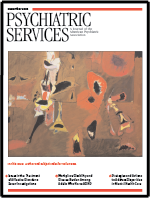The Center of Winter
When the review copy of this book arrived in the mail, my spirits sank. It arrived at the height of summer. A passage from the book itself somewhat describes my attitude as I approached my reading of it: "I wasn't sure who had died this time, but it was a suicide, and upsetting because it was completely out of season. No one killed themselves in summertime. It was rude." However, I read on.
In The Center of Winter, Marya Hornbacher, author of Wasted: A Memoir of Anorexia and Bulimia, tells several sad stories that emerge from one suicide. These stories are intertwined through the voices of three narrators, who show us loss from the inside out. Kate is six years old when her father, Arnold Schiller, shoots himself in the head on Christmas Day while her 11-year-old brother, Esau, is a resident at a state psychiatric hospital for adults. Their mother, Claire, is left to cope with living, loving, and raising the children. Each of the survivors narrates his experience of reweaving the fabric of life after Arnold's death rips a piece from the center.
Arnold Schiller is depressed and both feeds and soothes his internal demons with alcohol. Esau has bipolar disorder. After Arnold's death, Esau and Kate get drawn into the world of Dale, a neighbor and father whose experiences in Vietnam leave a legacy of posttraumatic stress disorder steeped in drinking until it becomes psychosis. He recruits the children in the staging of his final self-directed assault. These illnesses are not the focal point of these stories but, rather, part of the logic and illogic of the lives of people who bear them or can't.
The book is well written. It allows the reader to experience what each narrator experiences in a way that seems genuine. Its imagery is rich so that the novel plays in the imagination like a film. For the clinician, it brings mental illness out of the realm of diagnosis and treatment and into the realm of the experience of people whose lives get caught up in it and who have to go on living their lives despite it.
I let myself get caught up in the book, and I was glad to put it down and go on with living and with working with people whose experiences are in some way like those of Hornbacher's Schiller family. I think I gained something by reading The Center of Winter, and I recommend it.
Dr. Walker is a clinical assistant professor of psychiatry and behavioral sciences at the University of Washington and a member of the faculty of the Seattle Psychoanalytic Society and Institute.



